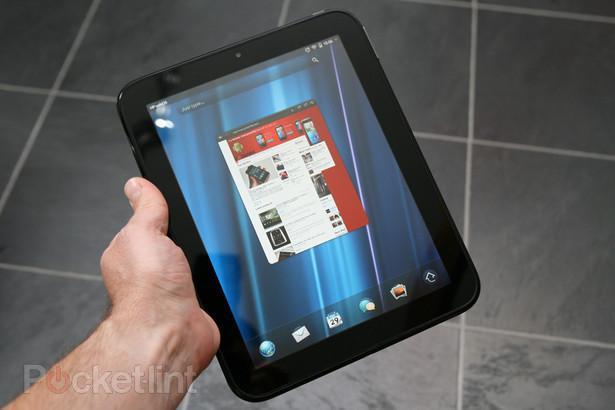
If you didn't catch word of the TouchPad fire sale, chances are you didn't turn on your computer this weekend. Every tech nut, and everyone who's been waiting for the perfect moment to buy a tablet, left their houses in a mad rush Saturday morning to pick up HP's discontinued and heavily discounted webOS tablet. The TouchPad was slashed from the already-lowered $399 (16GB) and $499 (32GB) to a mere $99 and $149, respectively.
Those who picked them up were likely just looking for a wallet-friendly way to casually browse the Internet from the couch or an electronic day planner. A large portion of buyers were also thinking ahead for the holidays, buying up a few to give to their children as an awesome Christmas gift that they wouldn't normally get. The remainder would have been webOS fans who were holding out for the right moment, hoping the TouchPad would eventually be discounted even more. Luckily, they were right and hopefully they got their wanting hands on one.
But someone had to ask, “Will it run Android?” People have, I'm sure, tried to get Android to work on webOS hardware before, and vice versa. But when Android fanatics realized that this was a possibility, they quickly joined the masses and likely swept up the straggling TouchPads faster than anyone else. Now, according to TechCrunch, there is a $1,500 bounty from modding community, HackNMod, for a working Android port to the TouchPad.
This is a perfect example of a phenomenon I simply cannot explain. Why do people always feel the need to have Android run on ... everything? I've ran several Android ports on things such as Windows Mobile devices and the Nook Color (though it already ships with a dumbed-down version of Android) and it just doesn't run nearly as fluid on hardware it was not intended to be on. Maybe it's just the excitement of a constant challenge in making it work or someone's dream to have Android run the world. Either way, I've never fully understood it.
In the case of the TouchPad, however, it's pretty obvious. For the price, there is nothing out there that compares, so why not? The specifications are as good, if not better, than most Android tablets with a 1.2GHz dual-core processor, 1GB RAM, a 1.3-megapixel shooter and 16GB or 32GB of built-in storage. And HP's webOS platform is fluid, beautiful and great at multitasking, but application support is a major caveat. Tablets are already questioned in their functionality and without a strong application base, their usefulness is pretty hard to defend. Creating a quality Android port on the TouchPad would effectively mean that buyers spent $150 (at most) and have a solid Honeycomb device and thousands of applications to play with.
As per usual when it comes to software ports, I'm a bit skeptical of what will come of the Android on the TouchPad. Will it run smoothly, without hiccups? It's possible, but it may take time – more time than most are willing to wait. Nonetheless, I will likely try running Android on the TouchPad, so long as I can revert back to webOS with ease. I love webOS and I don't need any more Android tablets. I would simply like to see what they can make of it.
What about you, tablet lovers? Did you buy a TouchPad this weekend? Was it in hopes of an Android port or because you love webOS? Vote in the poll below and share your thoughts in the comments section!
Image via Pocket-lint